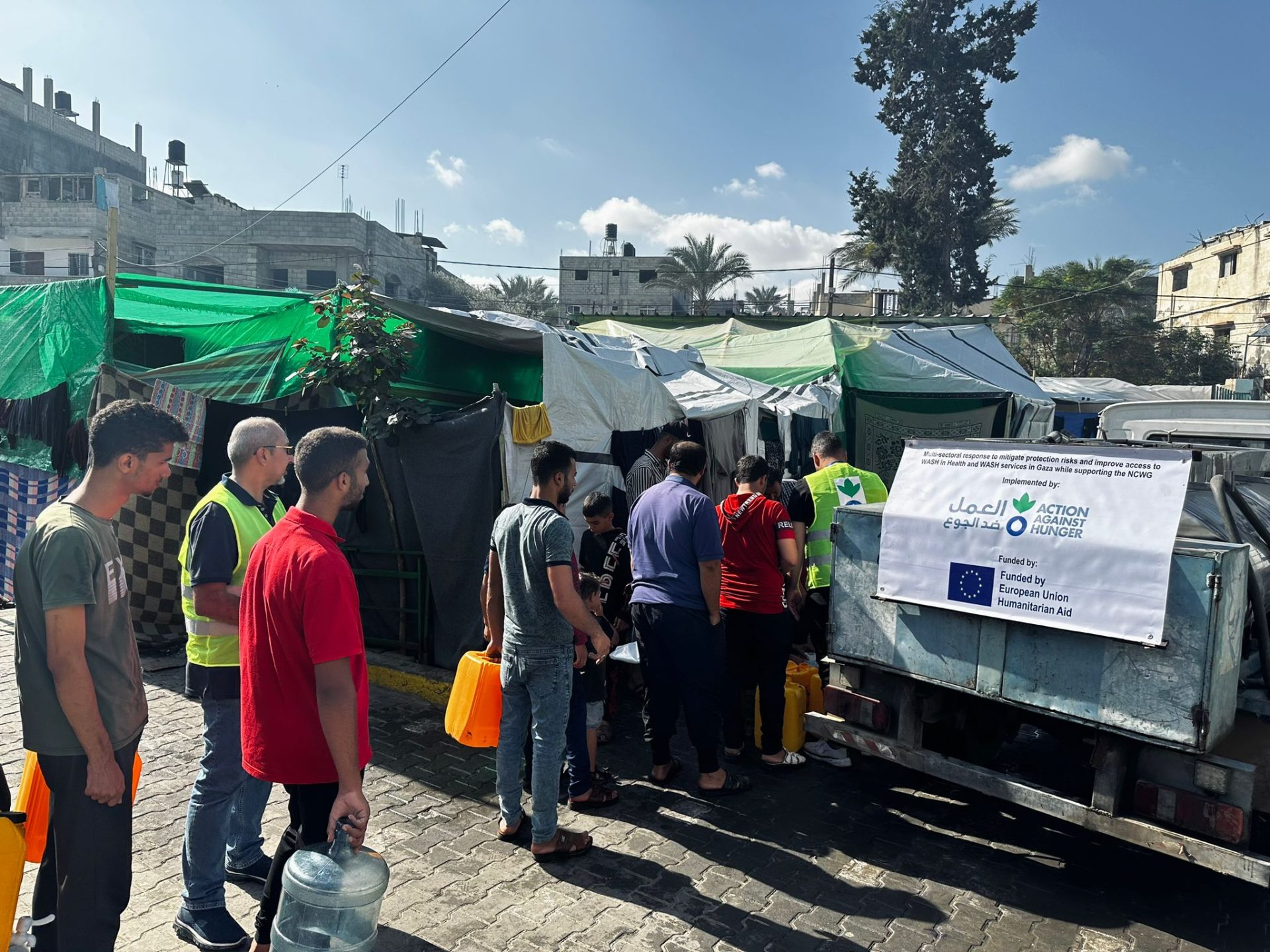London, 17th November – Action Against Hunger says that current rainfall will add to the sewage already flowing through the streets. Rainwater mixed with sewage is likely to lead to an increase in disease and possible outbreaks, which will spread rapidly due to overcrowding in displaced persons’ shelters.
In these overcrowded shelters in Khan Younis, the international charity has staff supporting civilians facing the highest levels of humanitarian need. Over 750,000 people have fled to the south of Gaza following intense conflict, with 1.5 million people displaced overall. Many of the displaced people rely on water assistance in shelters.
Action Against Hunger’s field staff said: “Lack of access to water is creating a breeding ground for skin allergies and diarrhoea, which easily spread given the crammed conditions in the shelter. Delivery of water happens every five days – even then people only have one bottle of water to wipe their bodies.”
“All the water tanks in our house are damaged, so we can hardly store water anymore. We have ended up recycling water from cleaning or washing. With the storms and rain coming, many people living in crowded areas will be unprepared for the drop in temperatures and flooding. If we do go outside, we are greeted by a flood of sewage in the streets, which will become even worse when the rains come.”
Action Against Hunger has distributed 5,200 litres of clean water to around 1,700 people sheltering at a primary school in Gaza City, an average of roughly three litres per person. While these provisions curb the risk of fatal dehydration for civilians in Gaza, water supplies are running dangerously low since the conflict began on 7th October.
The World Health Organization recommends between 50 and 100 litres of water per person per day are needed to ensure that most basic needs are met, while an absolute minimum of 15 litres is required in emergency situations. This includes clean water for drinking, cooking, and personal sanitation and hygiene. In fact, there are only about three litres of water per person per day to meet the Gazan population’s needs. This raises fears of dehydration, kidney failure and other critical health consequences, particularly for children.
With Gaza’s water infrastructure crumbling under the scale of the conflict, people are relying on fuel to transport aid, which includes water. Fuel has entered Gaza for the first time since 7th October, but in extremely reduced amounts to the scale of need, and only for transport of trucks.
Action Against Hunger is calling for an immediate ceasefire to ensure the protection of civilians and the unimpeded delivery of humanitarian aid, including access to water, sanitation, fuel and food. The organisation has been working in the Occupied Palestinian Territory since 2002, opening an office in Gaza in 2005.


